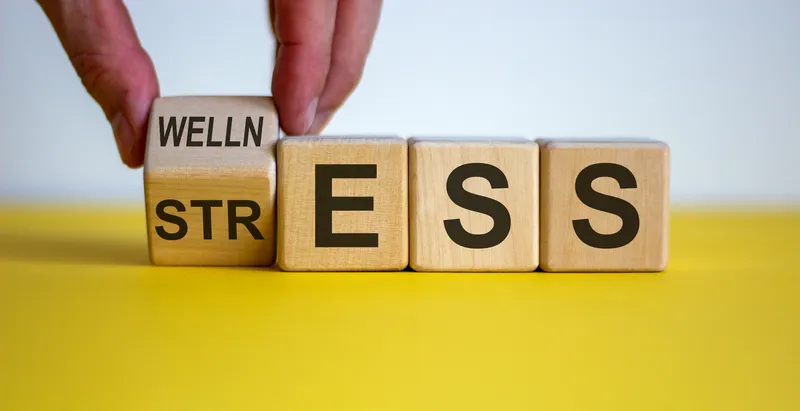10 simple habits to rewire stress for a calmer life
Feeling overwhelmed today? Tune into this short guide that offers 10 tiny habits to help you rewire your stress!
Stress is like a constant background noise in our lives—always there, quietly influencing how we feel and react. It’s something we all experience, and while we can’t completely erase it, we can train our brains to handle it differently, leading to a more peaceful, balanced life.
The secret is not in making dramatic changes, but in embracing small, everyday habits that can make a big difference. Here are 10 tiny habits that can help you rewire your stress response and cultivate a calmer life!
10 tiny ways to rewire stress for a calmer life

Image: Shutterstock
1. Track your stress
Stress often builds up subtly until it boils over. Become a stress detective by identifying your daily pressure point. Set an alarm for a specific time each day to check in with yourself. Notice where you feel tension in your body – clenched jaw, tight shoulders, racing heart? Tracking your tension helps you become aware of your triggers and stress patterns.
2. Stop screen autopilot
We often reach for our devices mindlessly, seeking a distraction that can ironically increase our stress levels. Create a visual cue to break this habit. Place a small, coloured dot or sticker on your phone, tablet, or laptop screen.
When you see the dot, it acts as a pause trigger. Before you pick up your device, ask yourself: What am I hoping to gain from this? This simple question can help you make more intentional choices about your screen time.
3. Gather small joys
Balance stress by actively seeking out and savouring moments of joy. Create a "Tiny Joys" folder on your phone and fill it with photos of things that make you smile – a beautiful sunset, a funny meme, a child's laughter. When you're feeling stressed, scroll through your folder and let those little moments lift your spirits.
4. Move when stressed
Physical activity is a powerful stress reliever, but it does not have to be a marathon. Perform a short 2 to 4-minute movement sequence that you can do anywhere, anytime. A quick burst of movement can shift your energy and help you release tension.
5. Don't fight hard feelings
Resisting or suppressing negative emotions only makes them stronger. Instead of fighting your feelings, try acknowledging them with curiosity. When anxiety arises, say to yourself, "Interesting, anxiety's here."
This simple shift in perspective can help you create space between yourself and your emotions, allowing you to observe them without judgment.
6. Take small gaps
Our brains need downtime to recharge. Schedule short recovery windows throughout your day, especially between meetings or demanding tasks.
Even 5 minutes of quiet reflection, deep breathing, or simply closing your eyes can make a big difference. These micro-breaks can prevent stress from accumulating and help you stay more focused and productive.
7. Learn from your body
Your body is a meter of your stress levels and sends subtle signals when tension arises. Before a stressful situation, take a 10-second body scan.
Close your eyes and gently scan your body, noticing any areas of tension like sweat, tight shoulders or a racing heart. This check-in can help you become more aware of your physical responses to stress and take steps to manage them.
8. Practice mindful motion
Bring mindfulness to even the most mundane tasks by connecting your breath to your actions. So, simply match your breathing to simple activities like walking to your car, or waiting in line. This practice can help you slow down and find moments of calm in a busy day.
9. Have short reset moments
Waiting in line, and sitting in traffic can be frustrating. Instead of letting these moments add to your stress, use them as opportunities for a mini-reset.
While waiting, focus on the sensation of your feet on the ground. Feel the weight of your body and connect with the present moment. These small moments of grounding can help you release tension and regain your composure.
10. Name your emotions
When you feel strong emotions, take a moment to name them. Keep a "Label" on your phone with a list of common emotions (e.g., anxious, frustrated, overwhelmed). When you are feeling something, quickly check your list and label it. This simple act can help you regulate your emotions and prevent them from spiralling out of control.
Closing thoughts
These 10 tiny habits are just the beginning. By incorporating these simple practices into your daily routine, you can cultivate a greater sense of calm and resilience. Remember, stress management is an ongoing journey. Continuously experiment, find what works best for you, and enjoy the process of creating a peaceful and fulfilling life.








